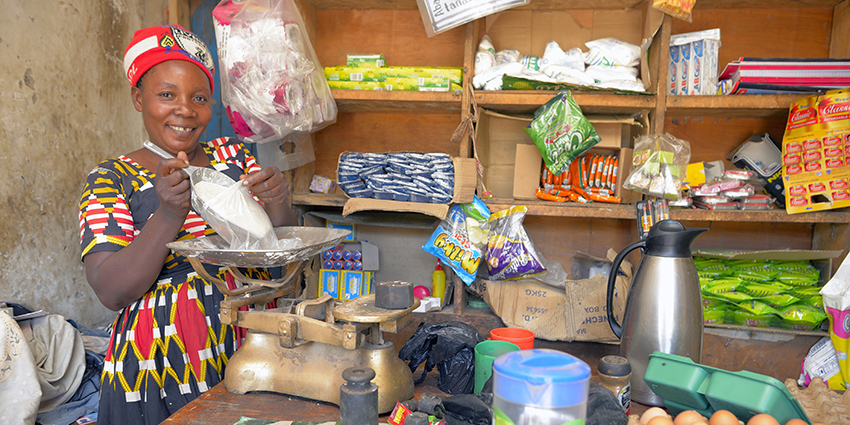
Since 2019, the Grameen Credit Agricole Foundation, the Swedish International Development and Cooperation Agency (Sida) and the United Nations High Commissioner for Refugees (UNHCR) have joined forces to support refugee populations in Uganda through an innovative programme whose objective is to improve the livelihoods, resilience and financial inclusion of refugees but also host communities.
Uganda hosts approximately 1.5 million refugees and asylum seekers, making it the first host country in Africa, and the third in the world. It is one of the countries with the most progressive reception policies in the world, and one of the leading countries for the implementation of the Global Action Framework for Refugees (CRRF) and the “Global Compact on Refugees” (GCR). In Uganda, refugees are free to circulate, have the right to work, and have been included in the country’s National Development Plan III. They obtain a piece of land, live in camps close to host communities and have access to the same national public services, in terms of health, education, access to water, livelihoods and services. sanitation.
A large majority of refugees (94%) live in 13 camps, located in the South West and North of the country. The remaining 6% live in urban areas, near Kampala. Despite Uganda’s progressive and inclusive policies, the poverty rate of refugees is nearly twice that of host communities, creating challenges for the peaceful coexistence of communities, and security issues, especially for women, girls and people with special needs.
The programme developed by the Foundation, UNHCR and Sida aims to improve access to credit and savings for refugees and their host communities so that they can develop income-generating activities. This programme, which takes advantage of mixed financing (public and private capital), comprises three components: a guarantee fund, debt financing by the Foundation for three microfinance institutions (MFIs) (Vision Fund Uganda, Brac Uganda Bank Ltd. and Ugafode) and technical assistance for MFIs and refugees. The Grameen Credit Agricole Foundation, with financial support from Sida, coordinates the programme, which also provides refugees with non-financial services such as business training and financial education.
Thanks to the programme, the MFIs supported have been able to open new branches in the districts of Moyo (Parlorinya camp), Yumbe (Bidibidi camp) and Isingiro (Nakivale camp) where many refugees live. Thus, VisionFund Uganda, a partner of the Foundation since 2020, was serving 28,739 active borrowers at the end of 2022 in the branches managed under the programme (including 20% refugees and 72% women), for an outstanding loan of 3.3 UGX billion (EUR 868,663). In the agencies concerned, major digitization work was carried out with 100% digital disbursements. The field visits carried out by the Foundation’s teams also made it possible to better understand the difficulties encountered in developing the financial inclusion of refugees: difficulties in recruiting refugee staff, various problems faced by clients (health problems, droughts, reduced food ration, people returning to South Sudan). A new objective for the institution is the implementation of insurance products (agriculture, health) for clients because over time, the needs of the refugee populations evolve.
To date, despite the various constraints and risks, in particular those related to the COVID-19 pandemic, the programme has developed well. A recent assessment found that out of a sample of 373 respondents, 91 new jobs had been created either through new businesses or through the expansion of existing businesses. Over 80% of the 289 beneficiaries surveyed and trained also said they had started saving. Similarly, 78% of beneficiaries said that the knowledge and skills acquired during the trainings they attended contributed to the growth of their business.
This innovative project will continue to develop with the aim of allowing as many people as possible to have access to financial services and quality training. To do this, the programme will ensure that financial education training is intensified to raise the awareness of as many refugees and host communities as possible, pursue customer surveys to facilitate informed decision-making and develop products adapted to refugees while continuing to roll out the project model in other refugee settlements.
Further information about the Refugee Financial Inclusion programme here.